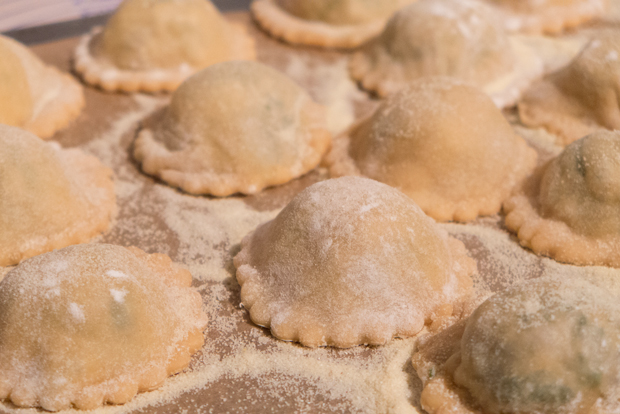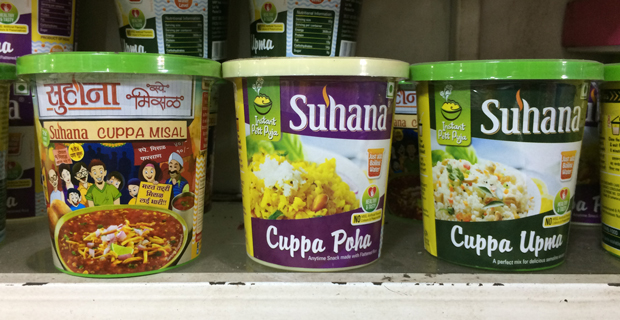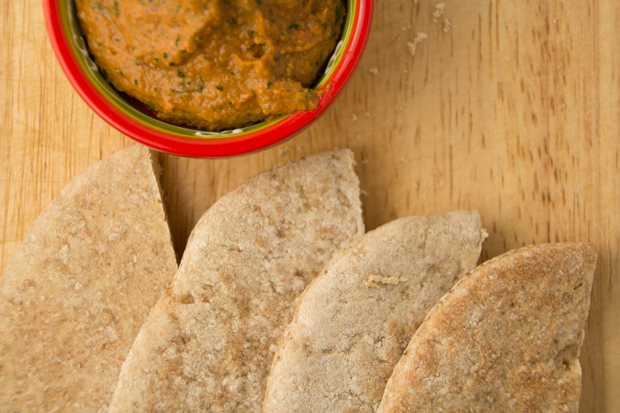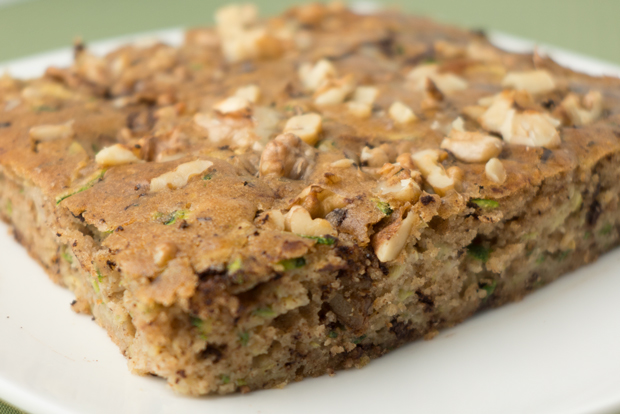posted by
Samar on
January 7, 2017

If I had it my way I’d probably spend all day in my kitchen and never go to work. Sadly, though, my employer would no doubt frown upon my giving lectures via Skype from the comfort of my home! There is, however, a silver lining: the proverbial water-cooler conversations with my colleague Martino. But instead of trading football scores we discuss food as Martino is just as infatuated with cooking as I am. Not surprising since he’s Italian and has a mom who cooks professionally back in Italy. That makes him exceptionally knowledgeable about Italian cuisine and I’ve learnt loads from him. And so it was the last time we bumped into each other, when he mentioned a fish ravioli he’d made the previous night. Fish in ravioli? I was intrigued and knew then and there what I was going to make that weekend!
posted by
Samar on
December 24, 2016

If there was any doubt of Momofuk Ando’s place in culinary history, these instant Indian breakfast-in-a-cup that I spotted on a trip to Mumbai settles it. The inventor of cup noodles would never have imagined this latest development in the cup-ification of food, but he would have surely approved of packaging misal (moth beans topped with crunchy farsan), poha (flattened and dried rice with onions, peas and potatoes) and upma (semolina with onions and vegetables), some of the most popular and traditional breakfasts in India, in cups to which you just add hot water. I’ve not tried these instant versions but having grown up on these dishes, which are common in western and southern India, I find the idea absolutely brilliant. (Apologies to readers for whom this is old news!)
posted by
Samar on
December 18, 2016

In Europe, the UK is usually the first to adopt (or bear the brunt of depending on your point of view) emerging American trends. And so it has been with gluten-free food. I was therefore hardly surprised that my local Tesco supermarket recently opened a new section devoted to “free from” products. Much more surprising was a report in the New York Times about how even Paris–a city whose very metaphorical foundations are made of this protein!–had succumbed as well. But I almost fell off my chair when I read in the same newspaper that one could now find gluten-free tempura in Tokyo. Now, admittedly, this being at the Mandarin Oriental, it is probably more for the benefit of gaijin tourists rather than the locals, as I’ve yet to meet a Japanese person suffering from celiac disease, real or otherwise. But trends, allergies and nutrition aside, there’s an excellent reason to incorporate non-wheat flours into your diet: they’re tremendously flavorful.
posted by
Samar on
November 6, 2016

One of the most enjoyable aspects of Middle Eastern and Mediterranean food are the mezzes, small dishes that range from dips to crudites and salads to meatballs. The word mezze (or meze) comes from Persian via Turkish and alternatively means ‘taste’, ‘flavor’ or ‘snack’. But it is the derived Hindi word ‘maza‘, meaning ‘fun’ or ‘enjoyment’, that I think truly describes the appeal of mezzes – something the restaurant world has picked up on with its current ‘small plate format’ mania. The recipe today, adapted from a cute little book by Ghillie Basan titled Mezze, is for a classic red pepper dip called muhammara popular in Turkey and the Middle East. If you’re not familiar with muhammara, think of it as the Middle Eastern version of that famous Spanish red pepper dip, salsa romesco, but with almonds (or hazelnuts) and sherry vinegar replaced by walnuts and pomegranate molasses, respectively. And just as much maza!
posted by
Samar on
October 2, 2016

When you cook 7 days a week, having a regular rotation of dishes you can make on autopilot is key. But it is just as important to make a new dish every few days to keep things fresh and interesting. Luckily, I probably read more about food than any other topic and whenever I come across an interesting recipe, technique or ingredient I add it to an ever-growing wish-list of dishes to make. While it may take me a few months to get around to making it, at least I’m never short of ideas. Every once in a while, though, I come across something that I want to make right away. Like today’s recipe for zucchini (courgette) cake. Now cakes are not especially high on my list of culinary priorities. But the idea of zucchini in a cake was so intriguing that I simply had to try it. And so brilliantly did it turn out that I made it twice that week!








